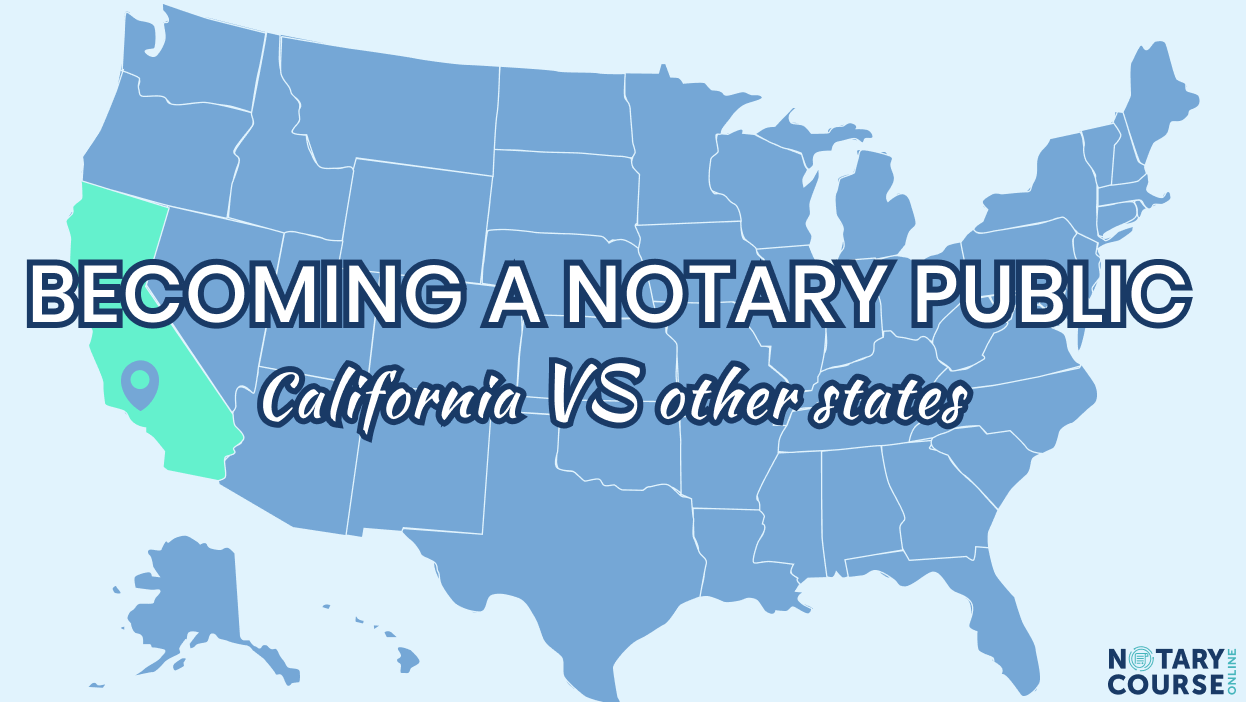California
Blog
Notary Application Denial: Causes and Solutions

-
by Notary Course Online
- January 31, 2025
Becoming a notary public is a rewarding and vital role that serves communities and businesses. However, one significant hurdle aspiring notaries may face is the possibility of application denial. If your notary application has been denied or you are concerned about avoiding this issue, this comprehensive guide will help you understand the common causes, ways to avoid them, and what steps to take if your application is rejected.
Why Do Notary Applications Get Denied?
Application denial for notary public commissions can occur for various reasons, ranging from clerical errors to more serious legal issues. Below are the most common causes:
1. Incomplete or Incorrect Application Forms
An incomplete or improperly filled-out application is one of the most common reasons for denial. Missing information, incorrect details, or failing to meet the state’s specific requirements can result in rejection.
2. Failure to Meet Eligibility Requirements
Every state has specific eligibility criteria for becoming a notary public. Common requirements include:
- Being at least 18 years old.
- Being a legal resident of the state where you’re applying.
- Having no felony convictions or certain misdemeanor offenses.
If you fail to meet these basic requirements, your application will be denied.
3. Criminal Record
A criminal record, especially one involving fraud, theft, or dishonesty, can lead to denial. Some states allow applicants to appeal or provide evidence of rehabilitation, but others have strict disqualification rules.
4. Failure to Complete Notary Training or Pass the Exam
Many states require applicants to complete mandatory notary training courses and pass an exam. Failing to provide proof of completion or not achieving a passing score can result in denial.
5. Errors in Background Check
States often conduct background checks as part of the application process. If there are discrepancies, undisclosed offenses, or incomplete records, your application might be rejected.
6. Owing Taxes or Debts to the State
Some states check for unpaid taxes or other debts. If you owe money to the state, it can result in a denied application until the issue is resolved.
7. Previous Notary Commission Revocation or Disciplinary Action
If you’ve held a notary commission in the past that was revoked or suspended due to misconduct, this history can lead to denial of a new application.
How to Avoid Notary Application Denial
Understanding the causes of denial is the first step to avoiding them. Here are actionable steps to ensure your application is approved:
1. Double-Check Your Application
Carefully review your application for completeness and accuracy. Ensure all required fields are filled out and the information provided is correct. Submitting a well-prepared application reduces the likelihood of rejection.
2. Verify Eligibility Requirements
Before applying, familiarize yourself with your state’s notary eligibility requirements. Ensure you meet the age, residency, and legal criteria before submitting your application.
3. Complete Training and Exams
Enroll in an approved notary training course and prepare thoroughly for the exam, if required by your state. Save and submit proof of completion along with your application.
4. Be Transparent About Your Background
Disclose any criminal history, even if it’s minor or occurred long ago. Honesty is crucial, as background checks are standard, and discrepancies can lead to immediate denial.
5. Resolve Outstanding Debts
If you owe taxes or other debts to the state, resolve them before applying. Providing proof of resolution can improve your application’s chances.
6. Follow Up on Past Issues
If you previously held a notary commission that was revoked or faced disciplinary action, provide evidence of corrective measures or compliance with state guidelines to support your new application.
What to Do If Your Notary Application Is Denied
If your application is denied, don’t panic. Follow these steps to address the issue:
1. Review the Denial Letter
Most states provide a denial letter that outlines the reasons for rejection. Carefully review the letter to understand the specific issues with your application.
2. Contact the Secretary of State’s Office
Reach out to the state’s notary division to seek clarification and guidance. They can provide details about the denial and steps you can take to remedy the situation.
3. Correct Application Errors
If the denial was due to clerical errors or missing information, correct the issues and resubmit your application. Be meticulous to ensure all requirements are met.
4. Provide Additional Documentation
In some cases, you may need to submit additional documents, such as court records or evidence of resolved debts. Ensure all supplemental materials are complete and accurate.
5. Request a Hearing or Appeal
If your denial is based on factors like a criminal record or past notary revocation, some states allow you to request a hearing or appeal. Prepare to present evidence of rehabilitation or compliance.
6. Seek Legal Advice
If the denial involves complex legal issues, consider consulting an attorney who specializes in notary or administrative law. They can guide you through the appeals process and improve your chances of approval.
Tips for a Successful Notary Application
To increase your chances of approval, follow these best practices:
- Stay Informed: Keep up with your state’s notary laws and application requirements.
- Prepare Thoroughly: Complete all training and study for the notary exam to ensure success.
- Be Proactive: Address potential issues, such as unpaid debts or incomplete records, before applying.
- Maintain Honesty: Always provide truthful and accurate information on your application.
- Keep Records: Retain copies of all application materials, training certificates, and correspondence.
Conclusion
Facing a notary application denial can be a frustrating experience, but it doesn’t have to be the end of your journey. By understanding the common causes, taking proactive steps to avoid them, and addressing issues promptly, you can successfully overcome this challenge and achieve your goal of becoming a notary public. Use the tips and resources in this guide to navigate the application process with confidence and ensure your success.
FAQs About Notary Application Denial
Can I reapply after my application is denied?
Yes, in most cases, you can reapply after addressing the issues that led to the denial. Ensure all requirements are met before resubmitting your application.
Will a minor criminal offense automatically disqualify me?
Not necessarily. Many states evaluate applications on a case-by-case basis. Provide evidence of rehabilitation or resolution to improve your chances.
How can I avoid errors on my application?
Double-check your application for completeness and accuracy. Follow the instructions carefully and ensure all required documents are included.
Where can I find resources to help with my application?
Visit Notary Course Online for comprehensive resources, training courses, and expert guidance to help you succeed as a notary public.






 Congratulations!
Congratulations!